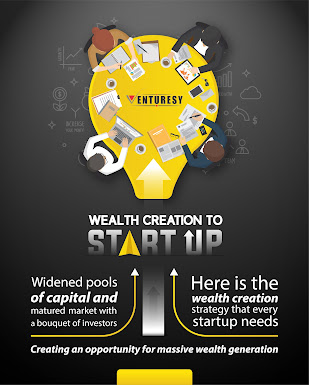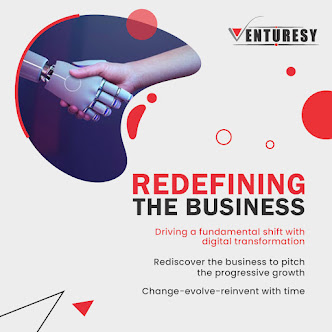Investment banker | Startup advisors in Madurai
The process of startup funding
India has become the third-largest startup ecosystem in the world
due to the gradual rise in the startup culture. The three main resources for a
startup are ideas, funds and people. The idea will be developed on considering
the market factors, competition and growth. If the business idea is found
appealing after the prototype process, the investors line up to fund the
startup. Startup funding is a difficult task and can transform the
business landscape completely. As a budding startup entrepreneur, you must
evaluate where your startup stands and how much funding is required to be
raised from external sources and what type of investor you need.
Regardless of what startup you have, you require funds to keep
your business on momentum. The capital determines how far your business will go
by understanding the crux of the business. It is difficult for a startup to
scale effectively without sufficient capital. Understanding the different needs
at each stage of funding will equip you with the confidence to engage investors
with a clear pathway. While startups have many strategies to grow, every
approach of the strategy has one common element – funding. Here we have
explained the process of startup funding.
Startup funding comes in many forms. Today, entrepreneurs
are accessing in a less conventional manner. Rather than taking up loans in
banks or capital from money lenders (financiers), entrepreneurs are cleverly
approaching professional investors on one condition of giving up equity in the
company.
An entrepreneur ascertains how much capital is required. This
stage is called self-funding or bootstrapping when you invest money from your
own pocket or procure from friends and families. It is the little investment
done at the earliest stage. The sources include banks of family and friends,
credit cards, personal savings and crowdfunding. If these are not available or
not sufficient, you can approach seed accelerators. This stage will let the
startup operate or take off from the planning.
This lets your business keep running. At this stage, investors
take a huge risk by investing in the business without seeing or sensing the
real-time product/service. The stakes are higher at this stage because
investors are funding for the product/service that is not felt or sensed in
real-time. Accelerators invest in both your startup and in your potential to
develop and pitch solutions to the problem. Seed funding will let your startup
take off the ground with operational functions. After the prototype, when the
product is ready for go-to-market strategy, seed funding accelerates the
process of product launch, marketing, talent acquisition, market research and
developing product-market-fit. Here, this stage requires a professional seed
capital investor or venture capitalist. The strategic investor not just
provides the funds but assists you along with the entrepreneurial track in
managing and operating the business with their business shrewdness. The size of
seed capital varies from 25 lakhs to 2 crores. The micro-funding eventually
turns into a venture capital fund if the investor believes in the startup
progression.
Venture capital comes into the frame after the product/service
hits the market. Most of the startups consider this as the growth phase
funding. It involves series A, B, C, D and goes on. At the end of each round,
the startup raises a higher value and increases its company’s valuation as
well.
·
Series A funding - this is the first round of funding in the venture capital stage.
At this stage, the product/service has set a customer base with a reliable
income stream. The funds obtained here are used for business growth, marketing
and brand credibility. Its size may reach from 14 million dollars to 15 million
dollars. The fund raised here opens the door to scale up. This round of series
is funded by HNIs and institutional investors who bestow their knowledge along
with capital. It is the crucial step as many companies fail to secure series A
funding after the seed stage. Series A results in long-term benefits.
·
Series B funding – the second round of venture capital stage. This stage is the
scaling phase where a startup tends to build products based on the customer’s
demand. In this round of funding, the business expands to the next dimension.
With these funding, the startup improvises the infrastructure and expands the
customer base, employees and management team of the company. their investment
in this round is usually higher as 30 million dollars to 60 million dollars.
The other purpose of this funding is to outlive competitors.
·
Series C funding and beyond – A startup can receive as many rounds of
investment as possible, till the goal is achieved. It is a pretty cautious
funding round. The more the investment rounds, the more release of the business
equity. Investors at this stage expect the hopeful profit for the money they
have invested. The Series C funding stage focuses on scaling the startup as
rapidly as possible. Since your startup has become less risky many hedge funds,
investment banks, private equity firms will happily invest in your startup
during the series C phase. New businesses that reach stage C will be on the
development path. These new companies are looking for more investments that can
help them create new products, reach new markets and even ensure that others do
not meet the expectations of comparable new business deals. They might even
look at acquiring other new under-performing startups. The startup gets valued
at a high amount of $100-$120 million, and the approximate value of funds
raised is approximately $50 million. In this stage, the startup is surged to
travel on the IPO track, increases market share and focuses on expansion.
Startups can go beyond series C based on their requirements and
goals. Only very few companies discover the need to go to this stage and those
companies do select to do this only for two reasons. The first reason is to
find new opportunities and to work on the opportunities before going for an
IPO. Another standard reason is that the company has not met the expectations
that were laid out in the previous stage of funding. It is probably a negative
reason and is also known as the ‘down-round’.
The initial public offering is the first time the company decides
to offer corporate shares to the public. It is the last stage of funding and
helps startups grow and diversify themselves. In the case of the company
performing well in the IPO, investors would gain a lot of profits. Growing
startups that need funding often use this process to generate funds, whereas
established organizations use it to allow startup owners to exit some or all of
their ownership by selling the shares to the general public. A startup cannot
go into IPO without a certain set of events. Financial performance, future
operations, audit reports, formation of an external public offering team and
prospectus with the SEC and determines specific dates for going public. It is a
crucial part of the entrepreneurial journey. Many startup entrepreneurs retire
once their startup has gone public. Many entrepreneurs also prefer becoming an
angel investors themselves and they tend to invest the hard-earned money into
the other innovative startups under the guidance of their angel investor and
knowledge acquired during the phase of seeking investment. The entrepreneur
turned investor will advise other entrepreneurs on how to grow their startup
and make it profitable.
The different stages of the investment process are set with each goal and entrepreneurs scale and develop their startup by meeting the goals. This scaling practice allows them to recognize where the startup is placed and which potential financial experts would put resources into their business to help them grow and develop. The entrepreneurs decide what type of investor could be appropriate for the startup venture. The funding process is the largest and crucial part of any business to meet all the requirements for a specific grant round. Every stage of the startup funding stage will leverage the entrepreneurial journey up to the limitless market skies, only if the entrepreneur is conscious of every informed decision he/she makes from business ideas to choosing investors.




Comments